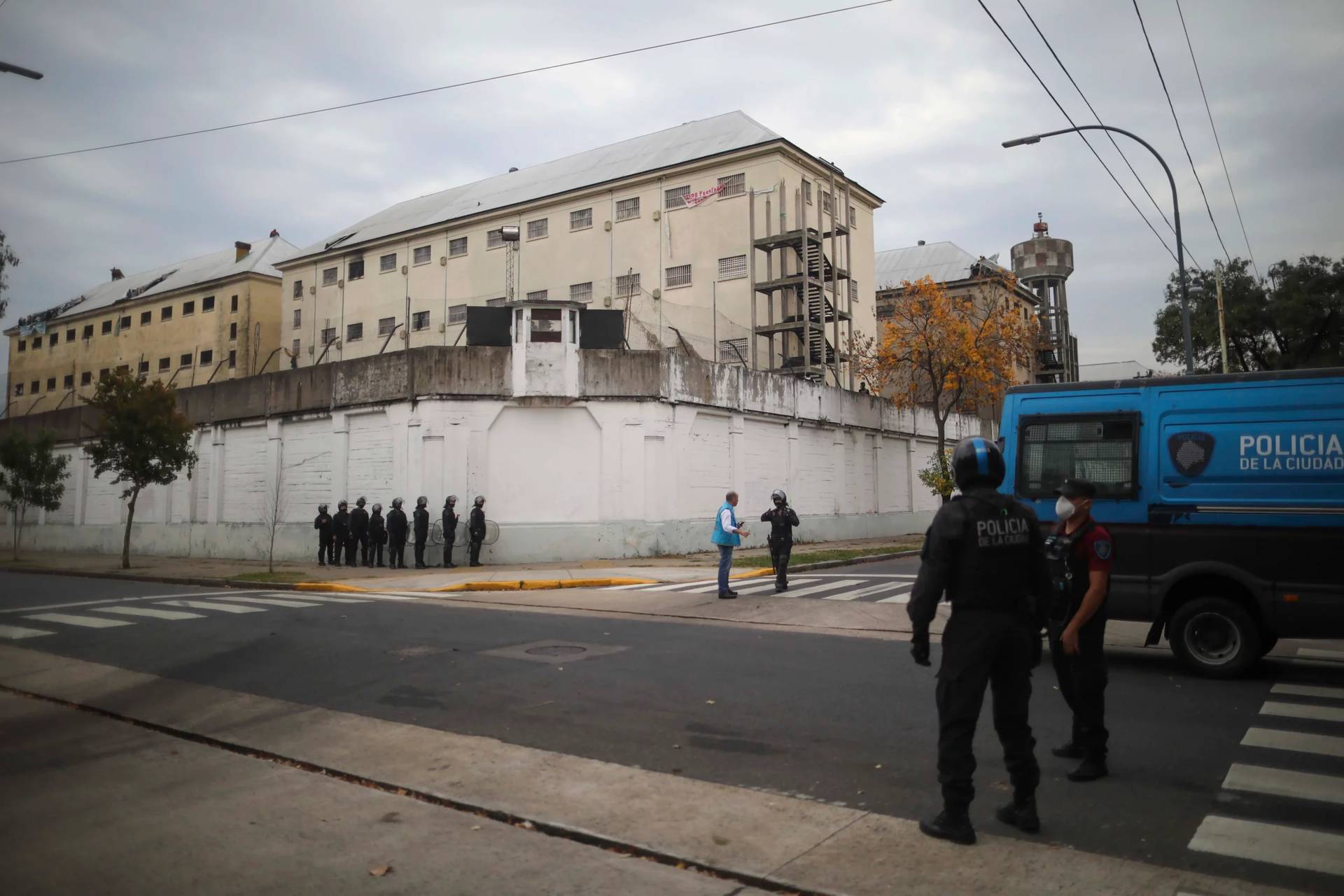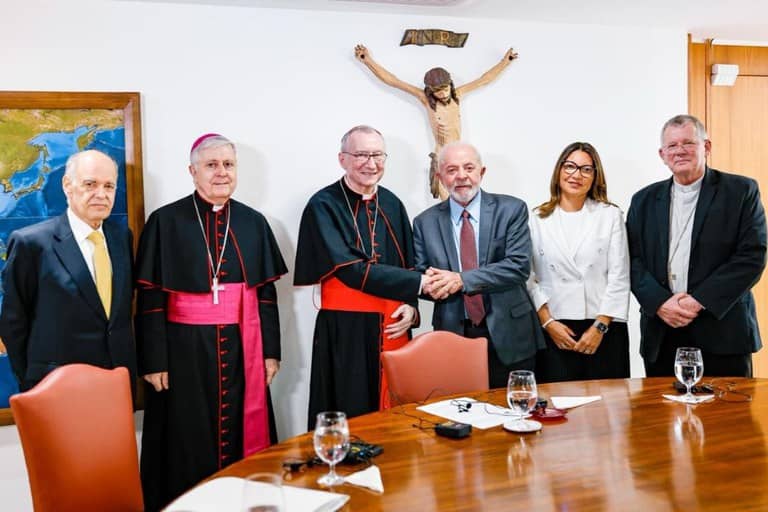ROSARIO, Argentina – A group of “slum priests” in Argentina has launched a year-long pilgrimage to highlight the nation’s drug addiction crisis, using the image of Our Lady of Lujan, Argentina’s patroness for assistance.
The Big Family Hogar de Cristo (FGHC) launched the project on Aug. 7 from the San Cayetano sanctuary in Buenos Aires. Pilgrims will carry a replica of the image through the Hogar de Cristo drug rehabilitation centers present throughout Argentina.
The Mass opening the pilgrimage was celebrated by Auxiliary Bishop Gustavo Oscar Carrara, Episcopal Vicar for the Slums and Popular Neighborhoods of Buenos Aires and vice-president of Caritas Argentina.
However, the homily was preached by Father José María “Pepe” Di Paola, one of the slum priests, and president of the Federación Familia Grande Hogar de Cristo, which he called places “of compassion as Jesus asked us, places where we receive those who society discards.”
“We want an Argentina where no one dies because of drug addiction, and we will walk through Argentina with our pilgrim image,” he said.
Di Paola underlined that many of those joining in the walk are young people who recovered from drug addiction with the assistance of dozens of centers the Catholic Church has set up in Argentina, at the specific request of then-Archbishop Jorge Mario Bergoglio, better known today as Pope Francis.
“We started this walk to transmit this same hope to other young people who do not have it today,” he said.
“We want a country without drugs,” preached Di Paola. “We want a country full of hope for young people. We don’t want there to be children who fail because of drugs.”
The first Hogar de Cristo was inaugurated during Easter in 2008 by Bergoglio, who, during the Mass of the Last Supper on Holy Thursday, washed the feet of a group of teenagers who had fallen victim to Paco, considered the cheapest illegal drug available in the streets of Buenos Aires.

Paco is what remains from the narco-kitchens producing cocaine bound for the United States and Europe and is a highly addictive mixture of raw cocaine cut with chemicals, glue, crushed glass, and rat poison.
“We will celebrate in March, when this journey throughout the country ends, 15 years of life and 10 years of the presence of our Pope Francis,” Di Paola said.
Thousands of young men and women – some as young as 9 – addicted to the drug are known locally as muertos vivientes, the living dead.
Accompanying Our Lady of Lujan’s image will be a flag depicting many of the children and youth who lost their battle with drugs, as a reminder of what they are working towards: “an Argentina where we can prevent the use, but also help those who are already submerged in drugs. We want them to receive what Jesus asked of us: that the Good Samaritan, the one who lifts up those who have fallen, is in the heart of every Argentinian,” Di Paola said.
The date chosen to launch the pilgrimage – Aug. 7, feast of St. Cajetan, known in Argentina as Patron Saint of Work and Bread – was not random.
The priest called the shrine “the best place to start this walk so that St. Cajetan listens to the desperation of so many young people who are submerged in drugs, who do not find meaning in life, the desperation of mothers who do not find places or the way to give their children the reason to live with joy and hope. We know he will listen to them. He will listen to all of us.”
Earlier in the day, Cardinal Mario Aurelio Poli, handpicked by Pope Francis as his successor in Buenos Aires, celebrated Mass for thousands of pilgrims.
The feast has long been a headache for politicians, as it is considered a social thermometer in a country in constant economic turmoil.
Poli took advantage of the opportunity to call out the social ills affecting the country.
“The bread that nourishes our life daily becomes more unattainable because of the suffocating inflation we suffer, and that generates misery,” he said.
Poli expressed his concern for the increase of people who need social assistance to survive, in the midst of the economic crisis that has left half of the population living in poverty, and a monthly inflation in July that was higher than Venezuela’s.
“How can we not think of the growing number of brothers and sisters who come daily to the soup kitchens, of the elderly who cannot buy their medicines, of the families whose incomes are increasingly insignificant?” Poli asked.
The doors of the sanctuary were opened at midnight, when people of all ages lined up for more than seven blocks to enter.
“When other doors close, the doors of the sanctuary open,” he said, highlighting the strong devotion to the patron saint of bread and work.
Poli called to have “a charitable look at reality, not to be scandalized, but to be moved and committed.”
Follow Inés San Martín on Twitter: @inesanma















